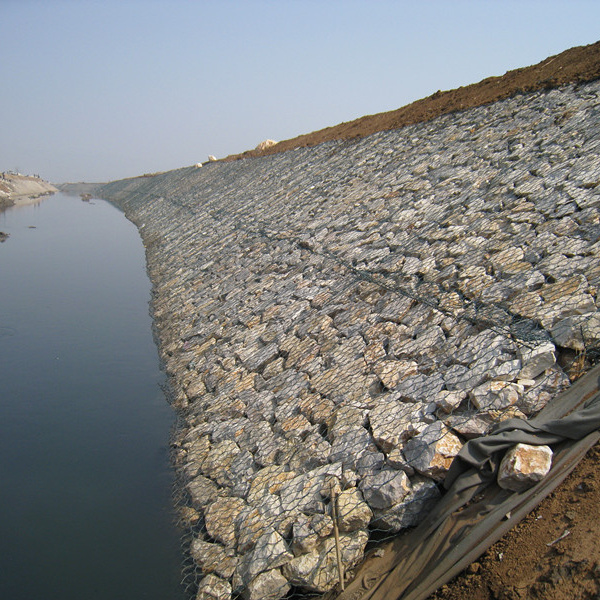Dec . 23, 2024 14:20 Back to list
Manufacturers of Gabion Spiral Joiners for Durable Outdoor Structures
Understanding Gabion Spiral Joiners and Their Manufacturing Process
Gabions, which are wire mesh containers filled with rocks, concrete, or other materials, have gained widespread popularity in various civil engineering and landscaping applications. They are particularly effective for erosion control, slope stabilization, and forming walls or structures due to their strength and permeability. One critical component that enhances the performance and durability of gabion structures is the gabion spiral joiner. This article explores the significance of gabion spiral joiners, their manufacturing process, and the role of factories in producing high-quality joiners.
What Are Gabion Spiral Joiners?
Gabion spiral joiners are specialized connectors used to link individual gabion units together. These joiners are typically made from galvanized steel or other corrosion-resistant materials, ensuring that they can withstand harsh outdoor environments. The spiral design allows for easy installation, as it securely joins adjacent gabion baskets while maintaining flexibility. This design is particularly advantageous when constructing large-scale projects, as it minimizes the need for additional tools and ensures that the structures can adapt to movements caused by soil shifts or water flow.
The Importance of Quality Joiners
Quality gabion spiral joiners are essential for the overall integrity of gabion structures. Inferior joiners can lead to structural weaknesses, risking the stability and functionality of the project. Specifically, low-quality joiners may result in loosening over time, allowing for water erosion and compromising the design's intended purpose. Therefore, sourcing high-quality joiners from reputable factories is critical for successful gabion installations. Factors that contribute to the quality of gabion joiners include material composition, manufacturing processes, and adherence to industry standards.
The Manufacturing Process
The manufacturing process of gabion spiral joiners involves several key steps
1. Material Selection The process begins with the selection of high-quality materials, often galvanized steel, which ensures durability and resistance to rust and corrosion. Manufacturers may also consider stainless steel or PVC-coated wires for specific applications.
2. Wire Shaping The raw wire is fed into machines that bend and shape it into a spiral form. This process requires precision to ensure that the dimensions of each joiner meet the necessary specifications for durability and functionality.
3. Coating To enhance corrosion resistance, the shaped joiners are often coated. Galvanization is a common method, where the joiners are dipped in molten zinc to create a protective layer. Some manufacturers may employ additional coatings for enhanced performance in specific environmental conditions.
gabion spiral joiners factories

4. Quality Control After production, each batch of spiral joiners undergoes stringent quality control checks. This step is crucial as it ensures that every joiner is free from defects and meets the required standards.
5. Packaging and Distribution Once deemed fit for use, the gabion spiral joiners are packaged carefully to prevent any damage during transportation. Manufacturers then distribute them to various markets, including construction projects, landscaping firms, and distributors.
Choosing the Right Factory
When selecting a factory for gabion spiral joiners, several factors should be considered
- Reputation Opt for factories with positive reviews and a proven track record in the industry. Customer testimonials and prior projects can be important indicators of quality.
- Certification Ensure that the manufacturing facility complies with relevant industry standards and possesses quality certifications.
- Production Capacity Depending on the size of the project, it’s essential to choose a factory that can meet your demand effectively and on time.
- Customization Options Some projects may require specific dimensions or features; thus, factories that offer customization can provide added value.
Conclusion
Gabion spiral joiners play a vital role in the structural integrity of gabion installations. Understanding their importance and the manufacturing process allows contractors and builders to make informed choices regarding sourcing. By selecting reputable factories that prioritize quality and adherence to industry standards, professionals can ensure the success and longevity of their gabion projects. As the construction landscape evolves, the demand for robust and reliable gabion products, including spiral joiners, will undoubtedly continue to grow.
-
HESCO Gabion Baskets for Coastal Erosion Prevention
NewsAug.22,2025
-
Longevity and Durability of River Rock Gabion Walls
NewsAug.22,2025
-
How to Integrate Gabion 3D Walls in Urban Planning
NewsAug.22,2025
-
Reno Mattress Gabion Applications in Civil Engineering
NewsAug.22,2025
-
How to Install Wire Mesh for Gabion Baskets Properly
NewsAug.22,2025
-
Best Materials for Filling a Chain Link Gabion
NewsAug.22,2025
-
Wire Mesh Thickness Impact on Gabion Wall Load Bearing
NewsAug.12,2025






